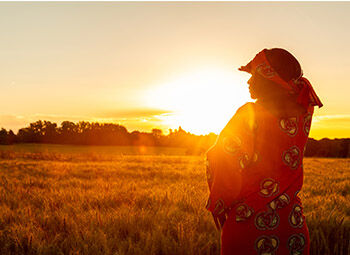Business lecturer publishes new book on making Africa self-sufficient

A Senior Lecturer in Birmingham City Business School has released a book detailing Africa’s vast agricultural potential and how it can become a self-sufficient continent.
Assessing supply chains in Africa
Dr Abdul-Razak Alhassan, Programme Director for the MSc Management Suite programmes at BCU, is celebrating after the publication of Supply Chain Management in African Agriculture: Innovative Approaches to Commodity Value Chains.
The book has been jointly authored with Dr Mamudu Abunga Akudugu, a Senior Research Fellow and Deputy Director at the University for Development Studies in Ghana.
“The book examines supply and value chains in African agriculture, providing a unique and cutting-edge thorough analysis of existing and practical business models for future development,” Abdul explains.
“The innovative approaches incorporated within the book are ideal to enable policy makers, practitioners and academics in the transformation of the African agriculture sector at large and serve as an instrument for poverty eradication.”
A vital new publication
The book explores commodity value chain structures; commodity clusters, arenas, linkages and business models; and systematic constraints within commodity value chains.
It also looks at value chain profiling in practice among others to promote strategies to empower the continent to gain self-sufficiency.
The book is available on Springer, Amazon and Palgrave, and can be purchased as a whole or by chapters.
Alongside lecturing, Abdul is an international business, development and management academic and consultant.
His current research interests are in the areas of organisational strategy, transformation and growth including change, development of small-and-medium-sized enterprises, and growth.
Improving African prospects through multiple projects
Abdul is not the first BCU researcher to highlight the vast potential of the African continent.
Also focusing on maximising agriculture in Africa is PhD student James Jinazali. He has been researching how to improve finances and technology in Malawi’s agricultural sector.
Dennis Aguma, a research student and lecturer, has been working with start-ups in Uganda – one of the world’s most entrepreneurial countries – to ensure they have the soft skills and knowledge needed to thrive.
Meanwhile, researcher Lamin Daffeh has set up a charity, built schools and even appeared on Deal Or No Deal in order to improve education in his native Gambia.